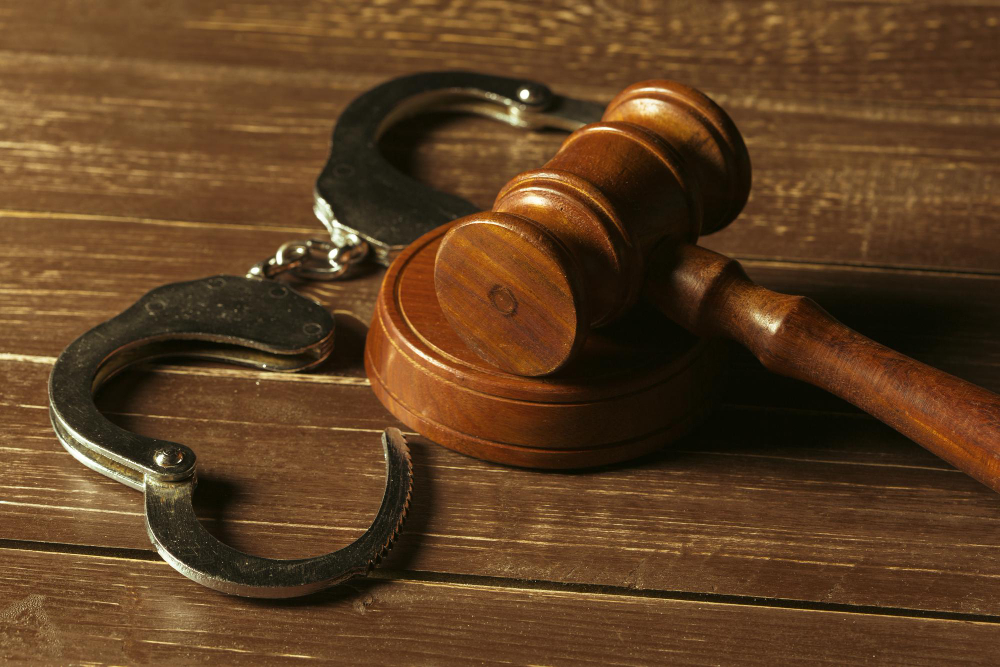


Getting arrested can be overwhelming, and many people assume that posting bail is a guaranteed right. However, the reality is more complex. While the Eighth Amendment protects against excessive bail, it doesn't guarantee that bail will always be granted. Understanding when and why bail might be denied can help you navigate the legal system more effectively, especially if you find yourself needing the services of a bail bondsman in Orlando, FL.
Judges have significant discretion when setting bail conditions, and they consider multiple factors before making their decision. These considerations go beyond the crime itself and examine the individual circumstances of each case. Let's explore the top situations where a judge might deny bail entirely.
One of the primary reasons judges deny bail centers on whether the defendant poses a flight risk. Courts evaluate several factors to determine if someone might skip town before their trial date.
Previous failures to appear in court create red flags for judges. If you've missed court dates in the past, even for minor infractions, this history can work against you. Judges also examine your ties to the community—employment status, family connections, property ownership, and length of residence all factor into this assessment.
Financial resources play a crucial role in flight risk evaluation. Individuals with substantial liquid assets or international connections might be viewed as having the means to disappear. Similarly, those facing severe potential penalties may be more motivated to flee rather than face trial.
Immigration status can also influence these decisions. Non-citizens, particularly those without legal status, may be considered higher flight risks due to concerns about deportation or lack of community ties.
The nature and severity of charges significantly impact bail decisions. Certain crimes carry such serious consequences that judges view detention as necessary for public safety.
Capital offenses like murder often result in automatic bail denial, especially when the evidence appears strong. The potential for life imprisonment or death penalty creates powerful motivation for defendants to flee, making bail inappropriate in many cases.
Violent felonies including armed robbery, sexual assault, and aggravated battery frequently lead to bail denial. Judges must balance the defendant's rights against community safety concerns, and violent crimes tip this balance toward detention.
Repeat offenders face additional scrutiny when requesting bail. A pattern of criminal behavior, particularly involving violence or serious felonies, suggests that release might endanger public safety or lead to additional crimes.
Drug trafficking charges, especially those involving large quantities or organized operations, often result in bail denial due to both flight risk and public safety concerns.
Protecting the community is a paramount consideration in bail decisions. Judges must evaluate whether releasing a defendant could endanger others or result in additional criminal activity.
Domestic violence cases receive special attention because of the high risk of continued abuse. When charges involve intimate partner violence, judges often deny bail to protect victims from retaliation or escalated violence. Restraining orders and protective orders don't always provide adequate protection, making detention the safer option.
Gang-related charges create complex public safety issues. The organized nature of gang activity and potential for witness intimidation often lead to bail denial. Gang members may also have extensive networks that could facilitate flight or continued criminal activity.
Cases involving stalking or harassment behaviors present ongoing threats to specific individuals. The psychological impact on victims and potential for escalated behavior make bail denial appropriate in many situations.
Terrorism-related charges almost always result in bail denial due to the extreme public safety risks involved and the potential for flight to countries without extradition treaties.
The integrity of the judicial process depends on witnesses feeling safe to testify truthfully. When defendants might intimidate, threaten, or harm witnesses, judges often deny bail to protect both individuals and the legal process.
High-profile cases with significant media attention create additional risks for witness safety. The public nature of these cases can make witnesses more visible targets for intimidation or retaliation.
Organized crime cases present particular challenges because criminal organizations have resources and motivation to silence witnesses. The sophisticated nature of these operations makes traditional protective measures less effective.
Cases with vulnerable witnesses—such as children, elderly individuals, or those with mental health issues—require extra protection. These witnesses may be more susceptible to intimidation tactics and less able to report threats effectively.
Previous incidents of witness tampering in related cases create strong presumptions against bail. If the defendant or associates have attempted to influence witnesses before, judges will likely prevent future opportunities.
Defendants already under court supervision face additional scrutiny when requesting bail. Existing violations demonstrate disregard for court authority and suggest that bail conditions might also be ignored.
Technical violations like missing check-ins or failing drug tests might not seem serious, but they indicate an inability or unwillingness to comply with court orders. Judges view these violations as predictors of future non-compliance.
New criminal charges while on probation or parole represent serious violations that often result in automatic detention. These situations suggest that community supervision isn't effective for the individual.
Absconding from supervision creates strong presumptions against bail. If someone has already fled from court supervision, judges have little reason to believe they'll comply with bail conditions.
Multiple supervision violations establish a pattern of non-compliance that makes bail inappropriate. Even minor violations become significant when they occur repeatedly.
Beyond these primary circumstances, judges evaluate numerous other factors when making bail decisions. Mental health issues might influence decisions in various directions—sometimes leading to treatment-focused release conditions, other times requiring detention for evaluation.
Substance abuse problems often complicate bail decisions. While addiction might explain criminal behavior, it also suggests potential for continued problems without treatment. Judges must balance rehabilitation opportunities with public safety concerns.
Financial circumstances affect both flight risk and bail setting. Individuals with significant resources might be able to post high bail amounts, while those without means might be detained on relatively small amounts.
When bail is denied, having experienced legal representation becomes even more critical. A skilled attorney can file motions for reconsideration, present new evidence, or argue for modified conditions that address the court's concerns.
Understanding the appeals process and bail review procedures can provide additional opportunities for release. Each jurisdiction has specific rules and timelines that must be followed precisely.
If you're looking for a bail bondsman in Orlando, FL, contact Mike Snapp Bailbonds today for more information about your options and how professional bail services can assist with your case.